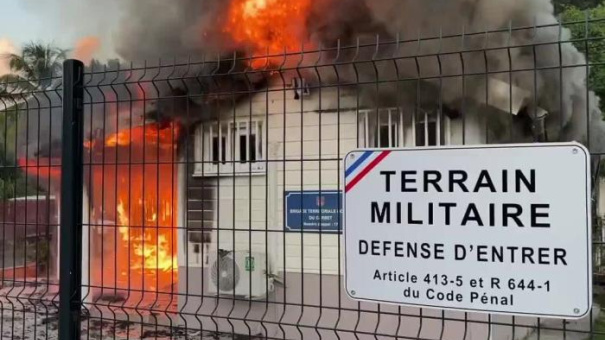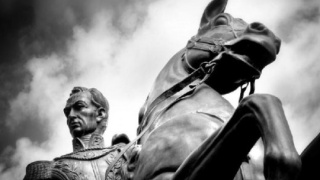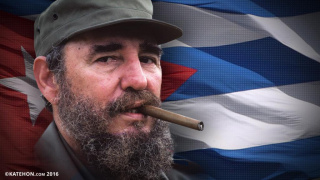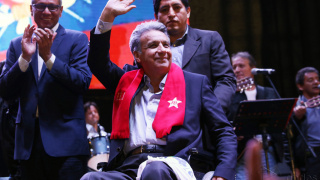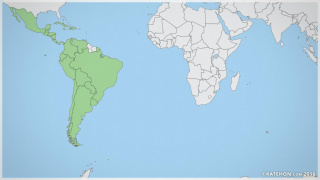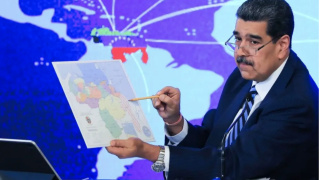Martinique And French Neocolonialism
A couple of weeks ago, there was news that riots broke out in the French overseas territory of Martinique in the Caribbean, which turned violent. In fact, the problems on the island began back in September, when local residents started to protest against the increase in prices for many goods and services, which affected their standard of living.
The rallies escalated into clashes with the police, in which at least one person was killed and dozens were injured. The police station and many cars were burned down. The barricades were put on the streets.
Hundreds of passengers were stranded in the French Caribbean island of Martinique on Friday after its airport was briefly forced to close because protesters overran the tarmac and tried to break in, the airport. Flights to Martinique were diverted to another French island, Guadeloupe. Later on French Interior Minister Bruno Retailleau said French authorities had regained control of the airport, which demonstrators targeted in the latest protest decrying a high cost of living. Retailleau added that reinforcements were being sent, however pointed out that “we also have to take into account” local people’s unhappiness about high prices.
Meanwhile, French authorities banned protests and a curfew was imposed on the island. After that, the news from Martinique stopped appearing in the world’s media, apparently due to the strict censorship.
According to the TeleSur TV channel, 37 political organizations, trade unions and associations called on Saturday for a day of general mobilization against repression and for the immediate withdrawal of the elite unit of the French Interior Ministry – CRS8 – from the territory of Martinique. Declaring their rejection of the repression of activists, the organizations stressed that “from now on, it is necessary to enter into genuine political, economic and social negotiations at a different level with all the living forces of our country in order to eliminate the root causes of the legitimate anger of our youth and the people of Martinique.”
Mobilization also demands an end to the colonial and capitalist system, “which represents a real embargo on the future of our people; poor development, unemployment, social poverty, low incomes and extreme dependence on food, which fuel the high cost of living and the mass exodus of our youth.”
Similarly, among the contextual elements highlighted by the organizations were: “the deliberate strangulation of our communities; looting, poisoning and the provision of land to young farmers; the blatant injustice and corruption of a two-tier system that criminalizes Martinique residents and protects others; violence and violence against women” and the abuses of the colonial State.”
As you can see, the situation is much more serious than the usual protests, which are not uncommon in France itself. In fact, the people of this overseas territory recognize that they are in colonial dependence, therefore they intend to fight for liberation from the oppression of Paris. It is quite possible that, in addition to the current demands, there will be an impulse to expel the French authorities and gain the sovereignty and independence of Martinique.
Martinique is an island located in the Caribbean Sea that’s part of the Lesser Antilles. It has been under France for almost 400 years (colonization began in 1635), Its population is about 400 thousand people, most of them are Negroes and mulattoes, descendants of slaves. There have been numerous uprisings against France on the island, which have been suppressed. The economy is based on agriculture and tourism. Among other French territories in the region are Guadeloupe, Mayotte and Reunion, as well as Guiana, located on the continent (bordered by Brazil and Suriname). All island departments have a backward economy. Reunion lives on subsidies, Mayotte also exports food.
If we consider the events in Martinique in the light of the general situation of France and its influence, then in the context of its lost positions in Africa, as well as the uprising in New Caledonia, where Azerbaijan supported the demands for independence, Paris clearly faces not just a social revolt, but anti-colonial protests that echo each other.
The unrest in Martinique may set an example for residents of the rest of France’s overseas territories in the Caribbean to revolt. If we follow the philosophical and political concept of the negritude, then all descendants from Africa have a common destiny and should show solidarity with each other. Therefore, protests in Martinique can be supported in other overseas territories and by other countries with black populations, especially those who actively advocate the processes of decolonization.
All this presents a serious challenge for Paris. The main issue is not even about population control or lifeless atolls and small islands. The fact is that sovereignty over these territories in the Indian and Pacific Oceans gives France the second largest exclusive economic zone (EEZ) in the world after the United States. Within these EEZs, France has rights to explore and exploit marine resources such as fish, extractable natural resources and hydrocarbons, as well as access to major trade routes.
The most important maritime communications located in close proximity to France’s regional EEZs include the Mozambique Channel, which connects the southern Indian Ocean with its northern arm and provides commercial access to the Mediterranean Sea through the Red Sea. In total, the French EEZ in the Indo-Pacific region accounts for 93% of the total national EEZ. French military personnel are also permanently stationed in most overseas territories, and France is actively positioning itself in the Indian and Pacific Oceans.
It is no coincidence that in July 2021, France adopted a new Indo-Pacific strategy, which focused on global security issues and cooperation with partners.
However, the recent precedent with the handing of a number of islands to Mauritius by the UK may open the way to further pressure on France on other islands to which claims have been made. Since the UN, in resolution No. 34/91 “The question of the Islands of Glorieuses, Juan de Nova, Europa and Bassas da India” dated December 12, 1979, has already called on the French Government to transfer these islands to Madagascar.
Finally, there is Corsica Island in the Mediterranean Sea. Separatist tendencies are quite strong there. In addition, as noted, “in Corsica, the state policy of mild genocide of the indigenous inhabitants of France has gradually formed a social bomb, which is desperately being hidden by the Fifth Republic… Mafia confrontations are tormenting Corsica, the aboriginals, originally associated with families, will unite in nationalist movements that multiply like mushrooms after the rain: the newly created Mossa Palatina party with its separatist, anti-Islamic and racialistic doctrine is already ready to present its candidates for future elections.”
It cannot be ruled out that all these movements and parties located in different places, but critical of the central government of Paris, can weave an international network to support each other on the demands of autonomy or even full independence.
